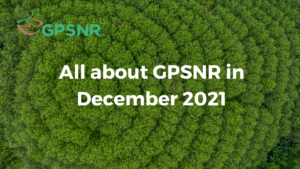What a year! All our working groups successfully overcame the challenges of remote working and time-zone coordination, while moving the needle on sustainability in natural rubber. Here are their updates for December 2021:
Strategy and Objectives Working Group
The group has finalized the Theory of change, which is currently in the process of being designed for public communications. They have also published the Environmental Risk Study, which can be found here. Currently, the group is working on developing the RFP for the Economic Risk Study, which will be published and worked on in 2022. The group is also working on developing next steps for itself based on the finalized Theory of Change.
Smallholder Representation Working Group
In 2021, the working group onboarded 39 new smallholders at GPSNR. In 2022, they will be focussing on mapping out the possibility of smallholder onboarding workshops in Columbia, Ghana, Liberia and Malaysia, which are countries with a relatively lower representation of smallholders within GPSNR. From January 2022, they will also be busy with developing a Smallholders Policy Framework.
Policy Toolbox Working Group
The group saw a major milestone in the approval of the reporting requirements at the 2021 General Assembly. In 2022, they will be busy developing guidance for thereporting requirements and a transparency roadmap before the reporting cycle begins in mid-2022. At the same time, the group continues to refine the Implementation Guidance before the General Assembly of 2022.
Capacity Building Working Group
The group recently hosted a webinar on GPSNR’s Good Agricultural Practices (GAPs) before the 2021 General Assembly, and published two RFPs for the assessment of the Knowledge Sharing Platform and GAP coaching for Indonesia respectively. In the next few months, it will focus on kickstarting the Thailand national sub-working group, advancing agroforestry implementation plans for GPSNR as well continuing to advance capacity building implementation in Indonesia and Ivory Coast.
Traceability and Transparency Working Group
The Traceability and Transparency working group has requested members’ input on the traceability benchmark and will work on refining it based on the feedback received. You can take a look at the draft benchmark here and give your feedback here before 31st December.
Shared Responsibility Working Group
The working group has discussed and explored solutions to address the root causes identified for each of the three focus areas of Shared Responsibility. It has also identified a consultant to support the development of a shared responsibility framework. In 2022, the group will draft activities and framework for Shared Responsibility for integration into other processes such as the Implementation Guidance and align with other working groups.





